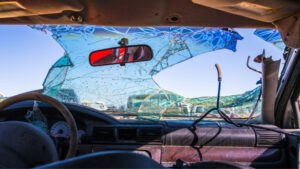
This week’s question comes from Randolf G. in the Sunset who asks “I heard that there has been a recall of cars with certain airbags because they are exploding and causing injury to people with sharp metal flying out with the airbag. I own a 2005 Ford Ranger. Am I in danger?”
Randolf, you may indeed be in danger and you should take your car to a dealer to have the air bag checked to see if it is in the lot or batch of defective airbags. Ford is recalling nearly 391,000 of its Ranger pickup trucks because the driver’s side airbag inflators can explode with too much force causing injury or death.
According to the Associated Press, this recall covers trucks from the 2004 through 2006 model years in the United States and Canada. This recall also comes just days after the government announced that a South Carolina man was killed when a Takata airbag inflator exploded in December.
Several years ago Trial Lawyers began seeing a trend of injury in their cases where people who were involved in crashes were dying not just from a force of impact, but in situations where the airbag deployed and sharp metal was being blasted into the face, neck and chest of unsuspecting drivers. It was akin to a grenade in the steering wheel.
This is an example of where the private investigations conducted by Trial Lawyers exposed a massive problem, just like with the Toyota sudden acceleration cases. After the National Highway and Safety Administration (NHTSA) began collecting more and more reports, it opened a formal investigation on June 11, 2014, (preliminary Evaluation, PEI-016) into Takata Airbags.
Ten vehicle manufacturers had incorporated Takata’s airbag modules in their vehicles: BMW of North America, Chrysler Group, Ford Motor Company, General Motors, American Honda Motor Co, Mazada North American Operations, Mitsubishi Motors North America, Nissan North America, Subaru of America, and Toyota Motors North America. Millions of vehicles are carrying the potential air-grenades in their vehicles. If you own one of these vehicles use the link below to obtain information about your car using its specific Vehicle Identification Number (VIN).
In 2004 Takata began a series of safety recalls and replacements. Takata had been collecting ruptured (deployed) airbags for some time.
In 2014, NHTSA, fearing that Takata may destroy evidence, ordered them to preserve any airbags which came into their possession so they could be evaluated by the NHTSA as well as private attorneys. Following the crashes Takata had demanded that the airbags be returned to them.
It was only in May of 2015 that Takata met its legal obligations to report “Defect Information Reports” (DIRs) to NHTSA. In those reports Takata stated that some propellent wafers in some inflators could experience “aggressive combustion” during airbag deployment. They stated that this was a problem that was occasioned in areas with high humidity/moisture conditions. They went on to tell NHTSA that “in the event of an inflator rupture, metal fragments could pass through the air bag cushion material which may result in injury or death to vehicle occupants.”
On November 13, 2015, NHTSA issued a press release stating “NHTSA’s investigation has discovered evidence that Takata violated several provisions of the Motor Carrier Safety Act including requirements that it notify NHTSA within 5 days of when it determined or should have determined the existence of a discovery of a defect.” NHTSA also determined that TAKATA provided the agency with inaccurate and incomplete evidence of the defects.
In November of 2015 Takata admitted the wrongdoing and was fined $200,000,000.00. It also agreed not to sell the airbags with these defects.
For a complete list of affected vehicles go to http://www.safercar.gov/rs/takata/takatalist.html. You may look up your vin number at https://vinrcl.safercar.gov/vin/.
This is just another case of corporate greed and deceit where a manufacturer hid the truth while people were injured or killed. It is trial lawyers who root out these problems trying to help their individual clients and, in doing so, make the world a safer place. If you, or a loved one, were injured – or death occurred – following a crash where an airbag deployed, get in touch with a trial lawyer to assist you in investigating whether Takata may be responsible for your losses.
This article was written by Chris Dolan and published by The San Francisco Examiner. Click here to read more of Chris Dolan’s weekly articles at SFExaminer.com.










